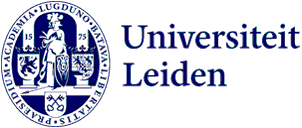
Aïsha MacDougall wins Political Science Master’s Thesis Prize 2025
Writing a master’s thesis in Political Science is a demanding yet rewarding journey. Every year, students deliver impressive research that showcases their analytical skills and academic rigor. This year, one thesis stood out for its exceptional quality. On 31 October 2025, during the master’s graduation ceremony, Aïsha MacDougall was announced as the winner of the 2025 Thesis Prize. Congratulations!
For the academic year 2024-2025, the Master’s thesis prize jury consisted of Diana Davila Gordillo, Corinna Jentzsch, and Daniel Thomas, and the jury selected the prize winner from a long list of fifteen theses. These theses were nominated by the students’ supervisors.
The jurors applied the same criteria as they would to assess work that is submitted for publication. After all, Political Science master’s students are expected to write their thesis in the form of a journal article. In their report, the jurors note that ‘all nominees and their supervisors delivered outstanding work’. The jury narrowed the list of potential winners down to three, and then chose one winner among the three remaining theses.
'Impressive example of research'
This year’s winner of the Master’s thesis prize is Aïsha MacDougall, for the thesis: ‘The Mundane Matters: Sumud as a visual ‘Weapon of the Weak’’, supervised by Nicolas Blarel.
This thesis takes an innovative approach to study everyday nonviolent Palestinian resistance to Israeli occupation in Jerusalem. It builds on original research with residents of Jerusalem, making use of a visual research method called photovoice, in which participants document their lived experiences. The method allowed Aisha to show in a compelling way when residents would resist visibly and when they would conceal their resistance.
According to the jury, 'it is an impressive example of research that significantly contributes to the academic literature, while being socially relevant for our current times.'
